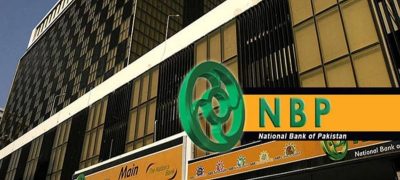Pakistan’s real estate sector, while a significant economic contributor, has simultaneously exacerbated environmental degradation and economic inefficiencies. The Dubai leaks, which revealed substantial investments by Pakistani investors in UAE properties, highlight a critical failure: Pakistan’s inability to offer attractive, safe, and profitable domestic investment opportunities. This diversion of capital has deepened the nation’s economic and environmental woes.
Environmental Impact of Real Estate
The unchecked expansion of real estate in Pakistan has led to severe environmental consequences. Fertile agricultural lands, vital for food security, are being replaced by sprawling housing societies. The loss of communal lands has harmed biodiversity and citizens’ well-being. This rampant development has increased reliance on fossil fuels and contributed to air pollution, amplifying the country’s climate vulnerability.
However, the real estate sector also presents a unique opportunity for economic growth and climate action. With its extensive linkages to over 40 industries, transforming this sector could stimulate broad-based economic development while addressing environmental concerns. By committing to safe, resilient, and low-carbon human settlements, Pakistan could leverage international climate investments.
Also Read: Rain and thunderstorms are expected in some parts of the country this evening
Issues in the Real Estate Sector
- Lack of Coherent Policies: The absence of comprehensive national and provincial policies, coupled with ineffective local government institutions, has facilitated the unregulated expansion of housing societies.
- Archaic Engineering Designs: Many developments rely on outdated designs and materials, exacerbating environmental degradation and increasing susceptibility to climate disasters.
- Financial Crimes: The sector has been a hotspot for money laundering, tax evasion, and other illicit activities, contributing significantly to ecological harm and unsustainable urban sprawl.
Strategies for Realigning Real Estate with Climate Goals
- Policy and Regulatory Reforms: Develop and implement comprehensive policies to regulate land use and real estate development. Prioritize vertical growth over horizontal expansion to preserve agricultural lands and reduce urban sprawl.
- Climate-Smart Development: Encourage the adoption of climate-resilient building designs and construction practices. Integrate resilience into the design, construction, and management of buildings and infrastructure.
- Stakeholder Engagement: Foster collaboration between government institutions, real estate developers, and communities to ensure development projects consider climate-related vulnerabilities. Use this collaboration to map climate-related risks and guide informed decision-making.
- Incentivizing Green Investments: Create attractive opportunities for local and international investors to finance sustainable real estate projects. Align investment strategies with climate resilience to attract capital committed to net-zero initiatives.
- Leveraging Remittances: Channel remittances from the Pakistani diaspora into climate-resilient infrastructure projects. Following examples from countries like the Philippines, Mexico, and India, Pakistan could direct remittances towards sustainable sectors.
Also Read: IMF Proposes Taxing Pakistan’s Agriculture, Real Estate, and Retail Sectors
Role of Key Players
Leading real estate companies in Pakistan, such as Bahria, Defence, Emaar, Graana, and Zameen, can drive the sector towards sustainability. By adopting global best practices and partnering with international firms experienced in climate risk assessment, these companies can:
- Develop analytical capabilities to understand physical and transition risks posed by climate change.
- Implement measures to improve flood defenses and disaster response plans.
- Protect communal lands and avoid high-risk areas.
- Develop climate-resilient building designs, enhancing both company resilience and national climate adaptation efforts.
Need for a Task Force
Transforming Pakistan’s real estate sector requires coordinated efforts from multiple stakeholders. The Prime Minister should constitute a task force dedicated to this cause, which would:
- Articulate a clear vision for resilient development.
- Initiate dialogue among key stakeholders.
- Engage with the international community to secure climate investments.
The real estate sector holds immense potential for transforming Pakistan’s economic and environmental landscape. Through strategic reforms, stakeholder collaboration, and a commitment to climate-smart development, Pakistan can leverage this sector to achieve sustainable growth and resilience in the face of climate change. This approach will improve the nation’s climate resilience and attract international finance, providing a path towards economic stability and environmental sustainability.







